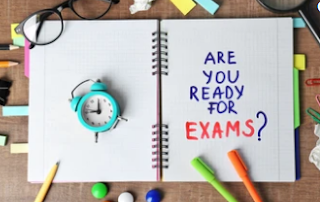Definitions of Parts of Speech- MDCAT

Definitions of Parts of Speech
-
Noun
A naming word. Name of a person, a place, a thing, or an idea. Including days and months
Examples:
pen, book, boy, girl, station etc.
There are different types of Nouns:
Examples:
Common Noun- Countable Noun "dog, table, book etc." and Uncountable Noun "sugar, milk, happiness etc."
Proper Noun: "Ali, Rawalpindi, London, etc.
Abstract Noun: "love, knowledge, freedom, etc.
Collective Noun: "team, family, flock" etc.
Compound Noun: "bookshelf, sunrise, toothpaste, etc.
Concrete Noun or Material Noun: "wood, glass, steel" etc.
Neutral Noun: "child, baby, person, student, teacher, doctor etc. -
Verb
An action a word. It helps the main verb to show the tense, moods, or voice of the sentences
Examples:
The Sun is shining and the birds are chirping.
She has broken a mirror. "broken" is a 3rd form of the verb and is called "Past Participle"
She has a broken mirror. "broken" is an Adjective here and is called "Past Participle Adjective"
"break" is a transitive verb and it needs an object.
I go to college daily. "go" is an intransitive verb and it needs no object.
There are two types of Objects: Direct and Indirect Object
Direct Object: He lent me some money. "me" is an Indirect Object and "some money" is a Direct Object -
Adjective
A word that qualifies the noun.
Examples:
A blue marker.
Past Participle Adjective is the 3rd form of the verb. Example: She is interested in her studies. interested is an adjective and it is called Past Participle Adjective
I have a broken mirror.
Arthur was gone. -
Adverb
A word that qualifies the Verb, an Adjective, and an other Adverb.
Examples:
The dogs ran quickly. Usually end with ly
Some adjectives also end with ly Examples: daily, friendly, motherly, fatherly, etc.
I saw a very big tree. very is an adverb here and it modifies an adjective big
much, very, many, more, too are modifiers -
Pronoun
A word that replaces a Noun or a Noun Phrase.
Examples:
He invited all his friends.
I told them my name and they told me theirs.
"Noun" is not used with "hers, yours, theirs, ours, and mine.
Examples:
Yours sincerely,
He told me his name and and I told him mine.
I told them my name and they told me theirs. -
Conjunction
A joining word. It links words, phrases, or clauses.
Examples:
I like cooking and eating, but I do not like washing dishes afterward.
There are three types of Conjunctions
Subordinating Conjunctions: if, so, because, since, etc.
Co-ordinating Conjuctions: for, and, nor, but, or, yet, and so. They are called FANBOYS
Correlative Conjuctions: Neither... nor, either ... or, whether ... or, not only ... but also, both ... and etc.
Conjunctival Adverbs: However, nonetheless, hence, anyhow, moreover, etc. These are used between two indpendent clauses -
Preposition
A connecting word. It shows the relationship between a noun or pronoun and another word in the sentence.
Examples:
The cat is sitting under the table.
The books are on the table. -
Interjunction
A word that shows strong feelings or emotions.
Examples:
Hurray! We have won the match!.
Alas! We have missed the train.


Comments